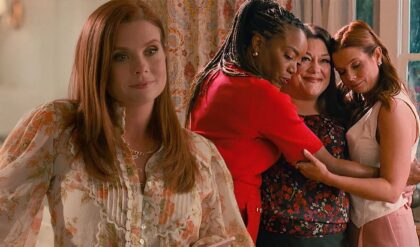Jodie Foster has had a fascinating career. With all child stars, it’s always interesting to see how they’ll grow up and navigate the acting world as they attempt to mature past the roles that made their name. Some never manage it as their work life peaks with their teens. But in the case of Foster, she’s kept on climbing.
Foster’s breakout came when she wasn’t even a teenager. She became a staple at the Disney studios in a scattering of roles in kids’ adventure films like Napoleon and Samantha or Menace on the Mountain. But she didn’t stick down that wholesome path for long. Foster’s ability to act big, tricky emotions with nuance and spark at a young age quickly caught the attention of the eyes of the cinematic big leagues.
At 12, Foster was where some actors dream of being for their whole life: on a Martin Scorsese set. He first snapped her up to be in the 1974 romantic drama Alice Doesn’t Live Here Anymore. She clearly impressed as he cast her once again in what is perhaps the ultimate turning point in her career. Whether through its controversy or its cinematic power, the 1976 film Taxi Driver was undeniably a landmark moment for Foster.

In the journey from child star to grown-up actor, there has to be a breaking point. There has to be a moment where the world suddenly realises that the performer is no longer a kid and finally stops seeing them as one, allowing them to convincingly take on more mature roles. For Foster, that seemed to come long before she was an adult. She was 12 when she took on the divisive role of Iris Steensma, a teenage sex worker, playing opposite Robert De Niro’s spiralling protagonist.
“He called my mom about the part, and she thought he was crazy,” Foster told Vanity Fair of the casting process. “But I went in to meet him for an interview. My mom thought, with my school uniform on, there was no way he’d think I was right for it. But he said yes, and she trusted him.”
On all sides, there was a big question mark of doubt over the role, how it should be handled or if it should be there at all. Foster recalled that even Scorsese himself seemed to struggle as she said, “They were very uncomfortable about my character. Nobody knew how to direct me.”
But despite all the uncomfortableness on set and the controversy that came after, the actor wouldn’t do anything different. “I would do that movie over a thousand times,” she said. “I think it’s just an extraordinary film.”
With more time to grow up and gain hindsight on the movie, it’s political commentary also interests Foster now. “I think it was really seminal for our time, for that particular time in history,” she continued. “What was America after Vietnam? I felt like Travis Bickle really articulated that.”
“Yeah, I’m super proud of it. I don’t think I would change a thing,” she summarises, looking back on the project with a positive eye despite the controversy.




